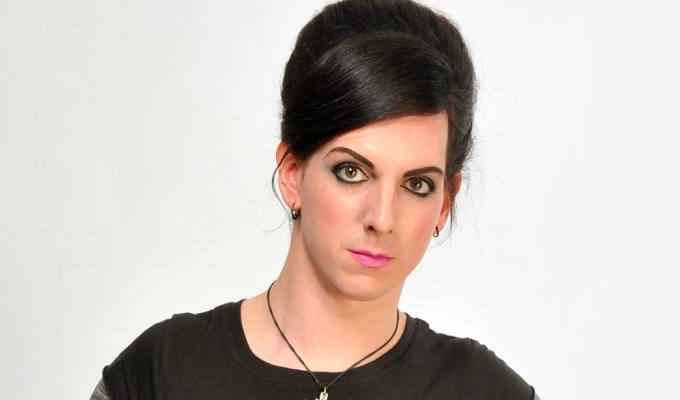
Riches from rags
Interview with Ray Galton
It’s the morning after his new Steptoe and Son play has opened in York, and writer Ray Galton is happy with the verdict. Not of the critics, who he professes not to care about (even though they seem to have liked it), but of Alan Simpson, his long-time comedy writing partner.‘Alan saw it for the first time, and was very impressed,’ he said. ‘Especially with Jake Nightingale, the actor playing Harold.’
That Simpson hadn’t seen the revival of the most celebrated characters he and Galton created may come as something as a surprise. But then Simpson quit writing, quite suddenly and with uncompromised finality, in 1978 – and although he gave his blessing to the new play, he wanted no part in working on it.
Retirement is a move Galton, who’s 75 though looks around a decade younger, cannot contemplate. ‘I can’t visualise any form of retirement,’ he says. ‘As you get older you do less and less, but the idea of switching off completely is alien to me.’
Not that you could blame him if he wanted to quit. After all, he’s achieved more than almost any comedy writer could ever dream of, changing the face of the genre.
With Simpson, both right, who he first met in Milford sanatorium in 1948, where they were both being treated for tuberculosis, they wrote scripts for Tony Hancock that moved radio comedy from the gag-based vehicles for variety-hall comedians into proper, dramatic sitcoms, with a less-than-sympathetic central character. They continued that legacy with Steptoe and Son, and the style pervades the best comedy today.
Now these much-loved characters are back, 31 years after their last TV outing. A revival out of the blue which came as a surprise even to Galton, who says he never particularly intended to go back to the duo. It was fellow writer John Antrobus, a long-time collaborator, who persuaded him.
‘I don’t quite see it as bringing them back,’ he says. ‘I wouldn’t have written this for TV.
‘When Antrobus said to me “What about Steptoe?” I said I would only be interested if Harold had at last killed his father. Every episode he said “I’ll kill you” in a fit of temper, I thought it would be interesting to see what happened if he actually did, and made a run for it
‘I’d worked with John Antrobus before, on a 1997 BBC series called Get Well Soon – based on my time with Alan in the sanatorium - but we cut it short after seven episodes after a disagreement with the BBC over what direction it should take
‘We also did a TV show called Room At The Bottom. It was a great show, but because they scheduled it at different times in different regions, it never got the audience it deserved.
‘We also worked on Wrong Arm Of The Law with Peter Sellers and on a farce which we gave the ironic title When Did You Last See Your Trousers, although no one saw the irony.’
Their previous working relationship meant wasn’t too much of a jolt for Galton to write the Steptoes’ lines with a new collaborator. But finding the right actors to say them was a challenge.
‘We didn’t want a Dead Ringers-style impression,’ he says. ‘The actors had to be able to take the roles on themselves, so the audience can accept them as characters – if they had been doing impersonations it would be hard to get the emotion across, too
‘Both actors were good, but we were especially impressed that Jake is a fan who studied the DVDs of the show long before he got the part.’
The enduing success of the show 43 years after it first aired is testament to its brilliance – but it was almost little more than a one-off curio, just one of a series of comic playlets Galton and Simpson created after Hancock ruthlessly dumped them, despite their scripts having made him the star he was.
‘The BBC had asked us what we wanted to write next and we said a series for Frankie Howerd to which they replied “Oh no he’s past it” (how wrong could they be) and so they gave us Comedy Playhouse: ten half-hours, and we were told we could do what we liked, all we had to do was keep the title. It was hard because we had no format to fall back on. But we had this one idea about a pair of rag and bone men; they weren’t even father and son until we were halfway through.
‘When it came to came to casting, we wanted Harry H Corbett and Wilfrid Brambell. We insisted on using actors, rather than comedians, because you can make them say or do anything you want them to do, like political things.
‘Comedians wouldn’t do that, it would cut their audience in half. You couldn’t get them to do anything serious – although you can nowadays – but actors are used to playing fictitious roles.
‘After the recording the BBC executive Tom Sloan told us “You know what you’ve got here, don’t you? A series”.
‘But we were reluctant to do that, having come out of a ten-year relationship with Hancock which, although good, had ended on a slightly difficult note. We didn’t want to go back to the commitment of a series.
‘But he kept on about it and in the end we said if Harry and Wilfrid, right, wanted to do it, we would. It was a get-out because we never thought they would agree, but they jumped at the chance. And part of the reason was money. Drama rates were miniscule compared to comedy.’
And so a legend was born. But what next for the man for whom retirement is anathema?
‘John and I have written another play, which has yet to see the light of day, which might possibly open in Paris, even though it is in English. There’s also a hope that Steptoe will go to the West End and on tour, I’d be very keen on that.
‘I write to get to as many people as possible, I could write a fringe play or a Royal Court drama.
‘But when I write I never even think about the audience and whether they will laugh – you can’t. Everyone’s got the same sense of drama, but not everyone’s got the same sense of humour.
‘And I don’t think you have to go downmarket for a bigger audience. Audiences aren’t daft – although if you give them crap, there is an audience for that.
Not that Galton is about to air the familiar complaints of an older generation that things ain’t what they used to be. Ask him his favourite contemporary comedies and he reels out a very long list without a second thought: Black Books, Father Ted, Ab Fab, The Office, Alan Partridge, People Like Us (‘it’s great that Chris Langham has suddenly been discovered’), Frasier, Seinfeld, Curb Your Enthusiasm, and The Larry Sanders Show. A connoisseur’s list if ever there was one.
And after dusting down Steptoe, mightn’t he want to revisit some Hancock glory days, too?
‘No,’ he says, emphatically. ‘Hancock comes up all the time. At least three things are in the pipeline, including a big BBC documentary.’
Seems he’s happy to stick to things other people can’t do… like this Steptoe revival.
Interview by: Steve Bennett
November 2, 2005
Published: 8 Jan 2009






